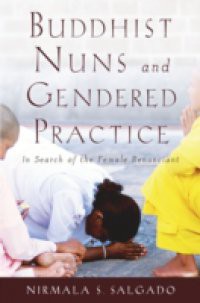Based on extensive research in Sri Lanka and interviews with Theravada and Tibetan nuns from around the world, Salgado's groundbreaking study urges a rethinking of female renunciation. How are scholarly accounts complicit in reinscribing imperialist stories about the subjectivity of Buddhist women? How do key Buddhist "concepts" such as dukkha, samsara, and sila ground female renunciant practice? Salgado's provocative analysis questions the secular notion of the higher ordination of nuns as a political movement for freedom against patriarchal norms. Arguing that the lives of nuns defy translation into a politics of global sisterhood equal before law, she calls for more-nuanced readings of nuns' everyday renunciant practices.



















